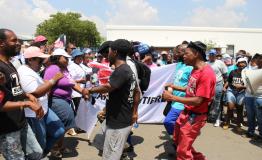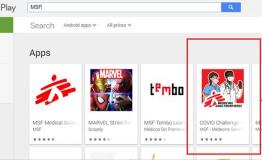

Zimbabwe
We run projects in partnership with the Zimbabwean Ministry of Health and Child Care (MoHCC), which includes treatment and care for people living with HIV, health programmes for migrants, adolescent sexual and reproductive health and environmental health.
Under the health programme for migrants in Beitbridge, MSF teams offer medical assistance to migrants and deportees according to their specific health needs. In Tongogara Refugee Camp, we provide refugees and asylum seekers with mental healthcare.
We also offer comprehensive sexual and reproductive healthcare services for adolescents in the urban districts of Mbare and Epworth and support the health ministry in responding to disease outbreaks.
MSF teams are currently responding to the COVID-19 pandemic in Zimbabwe.
Data and information from the International Activity Report 2021.
117
117
€4.8 M
4.8M
2,000
2,

Our activities in 2021 in Zimbabwe
In 2021, Doctors Without Borders (MSF) continued to address gaps in healthcare in Zimbabwe, with a focus on adolescent sexual and reproductive health and support for vulnerable migrants and deportees.
In the capital, Harare, we ran a project providing comprehensive youth-friendly sexual and reproductive health services, including safe abortion and post-abortion care, through our clinic in Mbare.
Our teams have been working to improve access to similar services in the nearby town of Epworth. We constructed a youth centre where young people can participate in recreational and educational activities and learn about sexual and reproductive health in a non-medical setting.
In Beitbridge, where we offer medical assistance to migrants, deportees and the local community, we strengthened measures to prevent the spread of COVID-19. These included providing technical and hands-on support to improve the flow of people, promoting handwashing and physical distancing practices, and improving access to water and sanitation services.
During the second and third waves of COVID-19, we also supported the national response by running training programmes for nursing assistants at Wilkins Infectious Disease Hospital in Harare and Beitbridge District Hospital. Our programme model equipped nursing assistants with basic hospital tasks to support the care of COVID-19 patients.
1,950
1,95
270
27
5
5

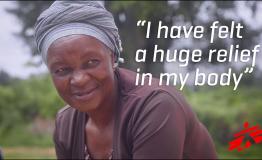
A Cervical Cancer Survivor Tells Her Story
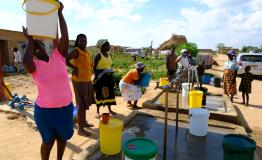
Water, waste, and vaccination: Fighting cholera and typhoid in Harare, Zimbabwe
![Kingsley Makwale MSF clinician examining Aisha at Mbenje Health Centre [Photo: Isabel Corthier/MSF] Kingsley Makwale MSF clinician examining Aisha at Mbenje Health Centre [Photo: Isabel Corthier/MSF]](/sites/default/files/styles/card_half/public/msfimages/news/msf295979_medium.jpg?itok=44E7Kpp2)
“No time to lose”: AIDS deaths toll stagnating due to lack of basic testing at community level
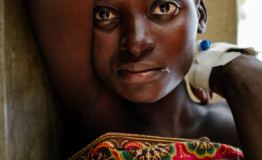
NO TIME TO LOSE: DETECT, TREAT AND PREVENT AIDS
